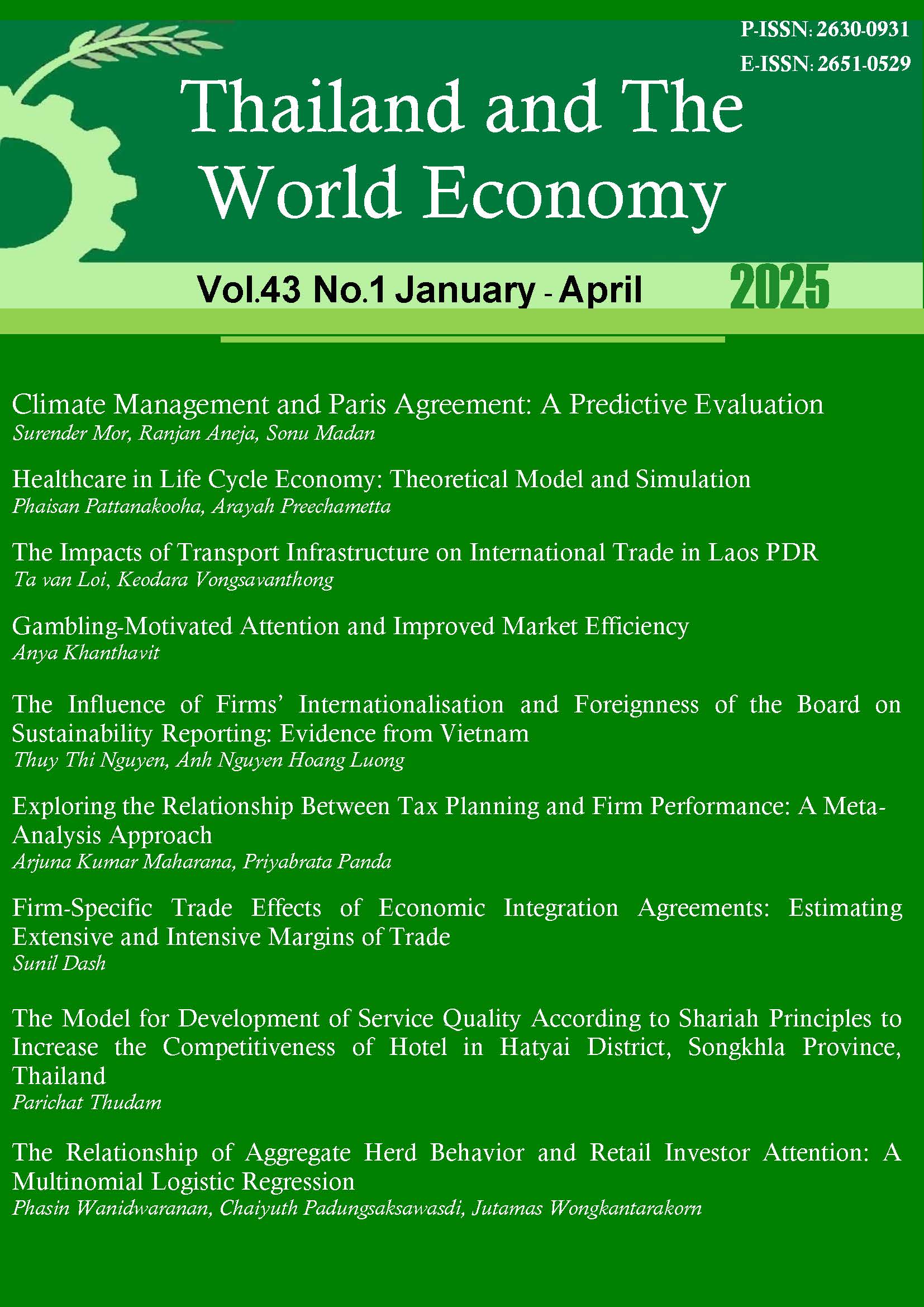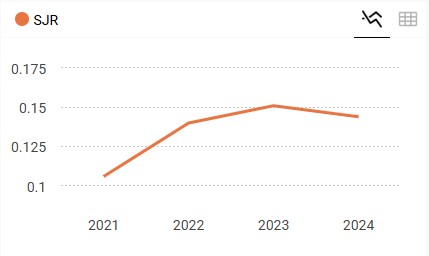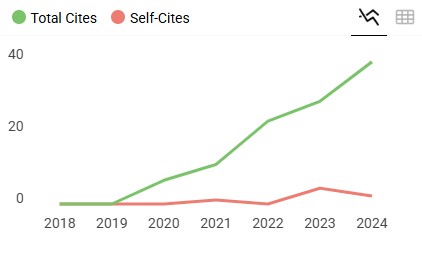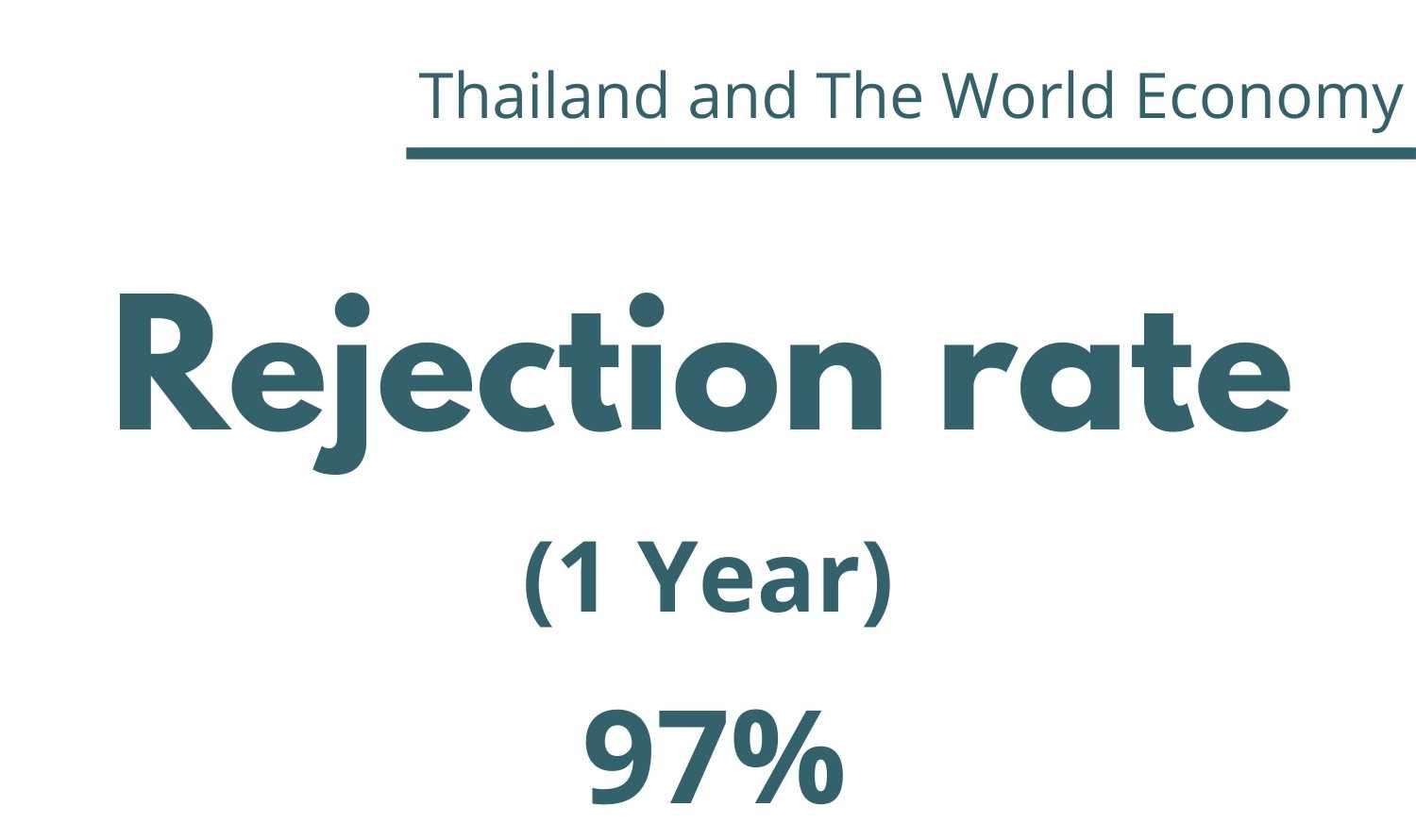The Influence of Firms’ Internationalisation and Foreignness of the Board on Sustainability Reporting: Evidence from Vietnam
Keywords:
Internationalisation, Foreignness of the Board, Global Reporting Initiative, Sustainability ReportingAbstract
This research explores whether internationalization and the foreignness of the board of directors, two important international forces, motivate firms to issue sustainability reports in the context of Vietnam, a developing country. This study uses pooled and fixed effect multinomial logit regressions with a sample of 200 Vietnamese listed firms and 1387 firm-year observations from 2014 to 2020 to analyze the relationships. The empirical results show a consistently positive relationship between a firm’s internationalization and sustainability reporting (SR) in Vietnam, while the board foreignness is not related to sustainability reporting. These findings indicate that when firms expand their business to foreign countries where sustainable development has been highly appreciated and adopted, they need to clarify their business operations within the acceptable range of social values by issuing sustainability reports. Meanwhile, there is no evidence that foreign directors transfer SR practices from their home countries to Vietnamese firms, as Vietnam still has a weak legal framework and a weak culture of SR. While consensus on whether internationalization and board foreignness are related to SR remains inconclusive in the literature, previous studies are few and generally investigate these relationships in countries with high levels of economic development. Our study provides evidence about these relationships in a low-to middle-income country. Our findings thus support the legitimate and institutional theories. In addition, our findings also identify the role of specific external stakeholder groups, thus expanding our understanding of the contexts in which firms issue sustainability reports. Our research, therefore, has implications for policymakers and firm decisionmakers.
References
Ahmed, T., Rahman, M. M., & Aktar, M. (2022). The impact of economic development on environmental sustainability: Evidence from the Asian region. Environmental Development and Sustainability, 24(3), 923-943.
Aksu, M., & Kosedag, A. (2006). Transparency and disclosure scores and their determinants in the Istanbul Stock Exchange. Corporate Governance: An International Review, 14(4), 277-296.
Alsaeed, K. (2006). The association between firm-specific characteristics and disclosure: The case of Saudi Arabia. Managerial Auditing Journal, 21(5), 476-496.
Amran, A., & Haniffa, R. (2011). Evidence in development of sustainability reporting: A case of a developing country. Business Strategy and the Environment, 156(2), 141–156.
Araya, M. (2006). Exploring terra incognita: Non-financial reporting in corporate Latin America. Journal of Corporate Citizenship, 21, 25-38.
Bapuji, H., Husted, B. W., Lu, J., & Mir, R. (2018). Value creation, appropriation, and distribution: How firms contribute to societal economic inequality. Business & Society, 57(6), 983–1009.
Barako, D. G., & Brown, A. M. (2008). Corporate social reporting and board representation: Evidence from the Kenyan banking sector. Journal of Management & Governance, 12(4), 309-324.
Beasley, M. S. (1996). An empirical analysis of the relation between the board of director composition and financial statement fraud. Accounting Review, 71(4), 443-465.
Bose, S., Khan, H. Z., Rashid, A., & Islam, S. (2018). What drives green banking disclosure? An institutional and corporate governance perspective. Asia Pacific Journal of Management, 35(2), 501–527.
Certo, S. T., Daily, C. M., & Dalton, D. R. (2001). Signaling firm value through board structure: An investigation of initial public offerings. Entrepreneurship Theory and Practice, 26(2), 33-50.
Chapple, W., & Moon, J. (2005). Corporate social responsibility (CSR) in Asia: A seven-country study of CSR website reporting. Business & Society, 44(4), 415-441.
Chen, C. J., & Jaggi, B. (2000). Association between independent non-executive directors, family control and financial disclosures in Hong Kong. Journal of Accounting and Public Policy, 19(4-5), 285-310.
Cho, C. H., Krasodomska, J., Ratliff-Miller, P., & Godawska, J. (2021). Internationalisation and CSR reporting: Evidence from US companies and their Polish subsidiaries. Meditari Accountancy Research, 29(2), 147-165.
Cialani, C. (2007). Economic growth and environmental quality. Management of Environmental Quality: An International Journal, 18(5), 568–577.
Clarkson, P. M., Li, Y., Richardson, G. D., & Vasvari, F. P. (2008). Revisiting the relation between environmental performance and environmental disclosure: An empirical analysis. Accounting, Organizations and Society, 33(4-5), 303-327.
Coff, R. W. (2002). Human capital, shared expertise, and the likelihood of impasse in corporate acquisitions. Journal of Management, 28(1), 107-128.
Cormier, D., & Gordon, I. M. (2001). An examination of social and environmental reporting strategies. Accounting, Auditing & Accountability Journal, 14(5), 587-617.
Cormier, D., Magnan, M., & Van Velthoven, B. (2005). Environmental disclosure quality in large German companies: Economic incentives, public pressures or institutional conditions?. European Accounting Review, 14(1), 3-39.
Deegan, C. (2000). Financial accounting theory. Sydney, NSW: McGraw Hill.
Deegan, C. (2014). Financial accounting theory (4th ed.). Sydney, NSW: McGraw Hill.
Deegan, C., & Blomquist, C. (2006). Stakeholder influence on corporate reporting: An exploration of the interaction between WWF-Australia and the Australian minerals industry. Accounting, Organizations and Society, 31(4-5), 343-372.
Deephouse, D. L. (2000). Media reputation as a strategic resource: An integration of mass communication and resource-based theories. Journal of Management, 26(6), 1091-1112.
Dhaliwal, D. S., Radhakrishnan, S., Tsang, A., & Yang, Y. G. (2012). Nonfinancial disclosure and analyst forecast accuracy: International evidence on corporate social responsibility disclosure. The Accounting Review, 87(3), 723-759.
Dienes, D., Sassen, R., & Fischer, J. (2016). What are the drivers of sustainability reporting? A systematic review. Sustainability Accounting, Management and Policy Journal, 7(2), 154-189.
Dowling, J., & Pfeffer, J. (1975). Organisational legitimacy: Social values and organisational behavior. Pacific Sociological Review, 18(1), 122-136.
El-Bassiouny, D., & El-Bassiouny, N. (2019). Diversity, corporate governance and CSR reporting: A comparative analysis between top-listed firms in Egypt, Germany and the USA. Management of Environmental Quality, 30(1), 116-136.
Eng, L. L., & Mak, Y. T. (2003). Corporate governance and voluntary disclosure. Journal of Accounting and Public Policy, 22(4), 325-345.
Fernando, S., & Lawrence, S. (2014). A theoretical framework for CSR practices: Integrating legitimacy theory, stakeholder theory, and institutional theory. Journal of Theoretical Accounting Research, 10(1), 149-178.
Fifka, M. S., & Drabble, M. (2012). Focus and standardization of sustainability reporting: A comparative study of the United Kingdom and Finland. Business Strategy and the Environment, 21(7), 455-474.
Freeman, R. E. (1984). Strategic management: A stakeholder approach. Massachusetts: Pitman.
Gamerschlag, R., Möller, K., & Verbeeten, F. (2011). Determinants of voluntary CSR disclosure: Empirical evidence from Germany. Review of Managerial Science, 5(2), 233–262.
Ghazali, N. A. M. (2007). Ownership structure and corporate social responsibility disclosure: Some Malaysian evidence. Corporate Governance, 7(3), 251-266.
Giannarakis, G., Andronikidis, A., Zopounidis, C., Sariannidis, N., & Tsagarakis, K. P. (2023). Determinants of global reporting initiative report: A comparative study between USA and European companies. Sustainable Production and Consumption, 35, 376-387.
Gillies, J., & Dickinson, M. (1999). The governance of transnational firms: Some preliminary hypotheses. Corporate Governance: An International Review, 7(3), 237–247.
Gray, R., Javad, M., Power, D. M., & Sinclair, C. D. (2001). Social and environmental disclosure and corporate characteristics: A research note and extension. Journal of Business Finance and Accounting, 28(3-4), 327–356.
Gray, R., Kouhy, R., & Lavers, S. (1995). Corporate social and environmental reporting: A review of the literature and a longitudinal study of UK disclosure. Accounting, Auditing & Accountability Journal, 8(2), 47-77.
Global Reporting Initiative. (2016). GRI reporting standards 2016. Retrieved from https://www.globalreporting.org/standards/
Habbash, M. (2016). Corporate governance and corporate social responsibility disclosure: Evidence from Saudi Arabia. Social Responsibility Journal, 12(4), 740–754.
Hahn, R., & Kühnen, M. (2013). Determinants of sustainability reporting: A review of results, trends, theory, and opportunities in an expanding field of research. Journal of Cleaner Production, 59, 5-21.
Hales, J., Kuang, X. I. J., & Venkataraman, S. (2011). Who believes the hype? An experimental examination of how language affects investor judgments. Journal of Accounting Research, 49(1), 223–255.
Hitt, M. A., Hoskisson, R. E., & Kim, H. (1997). International diversification: Effects on innovation and firm performance in product-diversified firms. Academy of Management Journal, 40(4), 767–798.
Ho, L. J., & Taylor, M. E. (2007). An empirical analysis of triple bottom-line reporting and its determinants: Evidence from the United States and Japan. Journal of International Financial Management and Accounting, 18, 123-150.
Hoskisson, R. E., Wright, M., Filatotchev, I., & Peng, M. W. (2013). Emerging multinationals from mid-range economies: The influence of institutions and factor markets. Journal of Management Studies, 50(7), 1295–1321.
Huafang, X., & Jianguo, Y. (2007). Ownership structure, board composition and corporate voluntary disclosure: Evidence from listed companies in China. Managerial Auditing Journal, 22(6), 604-619.
Hussainey, K., Elsayed, M., & Razik, M. A. (2011). Factors affecting corporate social responsibility disclosure in Egypt. Corporate Ownership and Control, 8(4-4), 432-443.
International Finance Corporation. (2013). Sustainability reporting handbook for Vietnamese companies. Retrieved from https://www.ifc.org/wps/wcm/connect/
topics_ext_content/ifc_external_corporate_site/sustainability-at-ifc/publications/
publications_handbook_vietnam-sus
Katmon, N., Mohamad, Z. Z., Norwani, N. M., & Farooque, O. A. (2019). Comprehensive board diversity and quality of corporate social responsibility disclosure: Evidence from an emerging market. Journal of Business Ethics, 157(2), 447-481.
Khanna, T., & Palepu, K. G. (1997). Why focused strategies may be wrong for emerging markets. Harvard Business Review, 75(4), 41–51.
Khanna, T., & Palepu, K. G. (2011). Winning in emerging markets: Spotting and responding to institutional voids. World Financial Review, 2011, 18-20.
Khanna, T., & Palepu, K. G. (2010). Winning in emerging markets: A road map for strategy and execution. Boston, MA: Harvard Business Press.
Kercher, K. (2007). Corporate social responsibility: Impact of globalisation and international business. Enterprise Governance eJournal, 1(1).
Kolk, A., Kourula, A., & Pisani, N. (2017). Multinational enterprises and the sustainable development goals: What do we know and how to proceed?. Transnational Corporations, 24(3), 9-32.
Kostova, T., & Roth, K. (2002). Adoption of an organisational practice by subsidiaries of multinational corporations: Institutional and relational effects. Academy of Management Journal, 45(1), 215–233.
Kostova, T., & Zaheer, S. (1999). Organisational legitimacy under conditions of complexity: The case of the multinational enterprise. Academy of Management Review, 24(1), 64-81.
KPMG. (2022). Survey of sustainability reporting 2022: Big shifts, small steps. Retrieved from https://assets.kpmg.com/content/dam/kpmg/se/pdf/komm/2022/Global-Survey-of-Sustainability-Reporting-2022.pdf
Kuzey, C., & Uyar, A. (2017). Determinants of sustainability reporting and its impact on firm value: Evidence from the emerging market of Turkey. Journal of Cleaner Production, 143, 27–39.
Lee, W. J. (2018). Group-affiliated firms and corporate social responsibility activities. The Journal of Asian Finance, Economics, and Business, 5(4), 127-133.
Legendre, S., & Coderre, F. (2013). Determinants of GRI G3 application levels: The case of the Fortune Global 500. Corporate Social Responsibility and Environmental Management, 20(3), 182-192.
Lester, R. H., Certo, S. T., Dalton, C. M., Dalton, D. R., & Cannella, A. A., Jr. (2006). Initial public offering investor valuations: An examination of top management team prestige and environmental uncertainty. Journal of Small Business Management, 44(1), 1-26.
Lipton, M., & Lorsch, J. W. (1992). A modest proposal for improved corporate governance. The Business Lawyer, 48(1), 59-77.
Liu, X., & Anbumozhi, V. (2009). Determinant factors of corporate environmental information disclosure: An empirical study of Chinese listed companies. Journal of Cleaner Production, 17(6), 593-600.
Mahmood, M., & Orazalin, N. (2017). Green governance and sustainability reporting in Kazakhstan's oil, gas, and mining sector: Evidence from a former USSR emerging economy. Journal of Cleaner Production, 164, 389-397.
Martínez-Ferrero, J., Banerjee, S., & García-Sánchez, I. M. (2016). Corporate social responsibility as a strategic shield against costs of earnings management practices. Journal of Business Ethics, 133(2), 305-324.
Marshall, V. B., Brouthers, L. E., & Keig, D. L. (2020). RIMS: A new approach to measuring firm internationalisation. Journal of International Business Studies, 51(7), 1133-1141.
Matuszak, Ł., Różańska, E., & Macuda, M. (2019). The impact of corporate governance characteristics on banks’ corporate social responsibility disclosure: Evidence from Poland. Journal of Accounting in Emerging Economies, 9(1), 1-20.
Mitchell, R. K., Agle, B. R., & Wood, D. J. (1997). Toward a theory of stakeholder identification and salience: Defining the principle of who and what really counts. Academy of Management Review, 22(4), 853-886.
Naciti, V., Cesaroni, F., & Pulejo, L. (2021). Corporate governance and sustainability: A review of the existing literature. Journal of Management and Governance, 25(1), 1-20.
Nazari, J. A., Herremans, I. M., & Warsame, H. A. (2015). Sustainability reporting: External motivators and internal facilitators. Corporate Governance, 15(3), 375-390.
Orazalin, N., & Mahmood, M. (2018). Economic, environmental, and social performance indicators of sustainability reporting: Evidence from the Russian oil and gas industry. Energy Policy, 121, 70-79.
Orazalin, N., & Mahmood, M. (2019). Determinants of GRI-based sustainability reporting: Evidence from an emerging economy. Journal of Accounting in Emerging Economies, 10(1), 140–164.
Park, S. B. (2018). Multinationals and sustainable development: Does internationalisation develop corporate sustainability of emerging market multinationals?. Business Strategy and the Environment, 27(8), 1514–1524.
Pérez-Gladish, B., Ferreira, F. A., & Zopounidis, C. (2020). MCDM/a studies for economic development, social cohesion, and environmental sustainability: Introduction. International Journal of Sustainable Development & World Ecology, 28(1), 1–3.
Pisani, N., Kourula, A., Kolk, A., & Meijer, R. (2017). How global is international CSR research? Insights and recommendations from a systematic review. Journal of World Business, 52(5), 591–614.
Pope, S., & Lim, A. (2020). The governance divide in global corporate responsibility: The global structuration of reporting and certification frameworks, 1998–2017. Organisation Studies, 41(6), 821–854.
Rao, K., & Tilt, C. (2016). Board composition and corporate social responsibility: The role of diversity, gender, strategy and decision making. Journal of Business Ethics, 138(2), 327-347.
Ruhnke, K., & Gabriel, A. (2013). Determinants of voluntary assurance on sustainability reports: An empirical analysis. Journal of Business Economics, 83(9), 1063-1091.
Sharif, M., & Rashid, K. (2014). Corporate governance and corporate social responsibility (CSR) reporting: An empirical evidence from commercial banks (CB) of Pakistan. Quality & Quantity, 48(5), 2501-2521.
Sìmnett, R., Nugent, M., & Huggins, A. L. (2009). Developing an international assurance standard on greenhouse gas statements. Accounting Horizons, 23(4), 347-363.
Staples, C. L. (2007). Board globalisation in the world’s largest TNCs 1993-2005. Corporate Governance: An International Review, 15(2), 311–321.
Suchman, M. C. (1995). Managing legitimacy: Strategic and institutional approaches. Academy of Management Review, 20(3), 571-610.
Suttipun, M. (2015). Sustainable development reporting: Evidence from Thailand. Asian Social Science, 11(13), 316-322.
Vormedal, I. H., & Ruud, A. (2009). Sustainability reporting in Norway: An assessment of performance in the context of legal demands and socio-political drivers. Business Strategy and the Environment, 18(4), 207–222.
Waddock, S. A., & Graves, S. B. (1997). The corporate social performance–financial performance link. Strategic Management Journal, 18(4), 303-319.
Watson, W. E., Johnson, L., & Zgourides, G. D. (2002). The influence of ethnic diversity on leadership, group process, and performance: An examination of learning teams. International Journal of Intercultural Relations, 26(1), 1-16.
Wei, J., Wei, Y., & Western, A. (2017). Evolution of the societal value of water resources for economic development versus environmental sustainability in Australia from 1843 to 2011. Global Environmental Change, 42, 82–92.
Welch, L. S., & Luostarinen, R. (1988). Internationalisation: Evolution of a concept. Journal of General Management, 14(2), 34-55.
Woodward, D., Edwards, P., & Birkin, F. (2001). Some evidence on executives’ views of corporate social responsibility. The British Accounting Review, 33(3), 357-397.
WCED, S. W. S. (1987). World commission on environment and development. Our Common Future. Retrieved from https://sustainabledevelopment.un.org/content/
documents/5987our-common-future.pdf
Downloads
Published
How to Cite
Issue
Section
Categories
License
Copyright (c) 2024 Thailand and The World Economy

This work is licensed under a Creative Commons Attribution-NonCommercial-NoDerivatives 4.0 International License.










